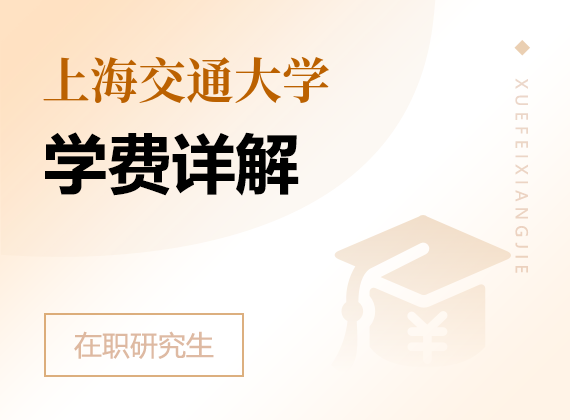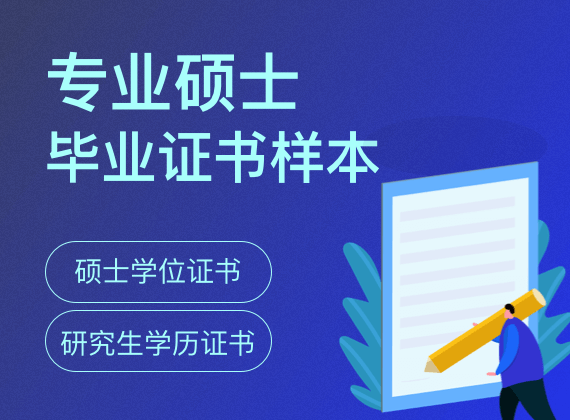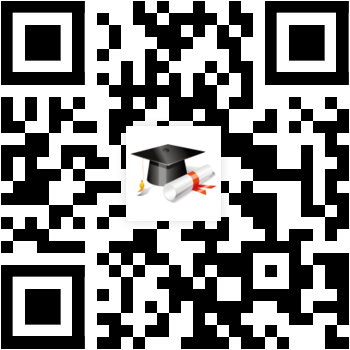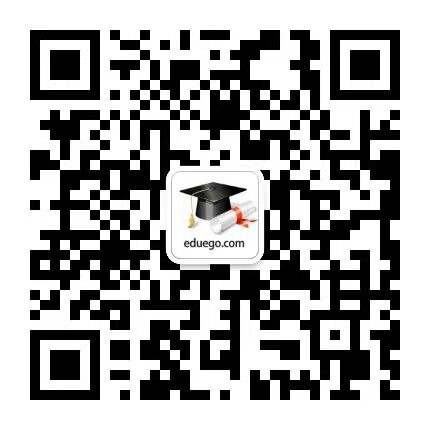2020年同等学力人员申请硕士学位外国语水平全国统一考试(一)
来源:在职研究生招生信息网 发布时间:2020-11-06 16:49:40
对很多准备参加同等学力申硕外国语考试的学员来讲,尽早了解2020年同等学力申硕统考外国语真题十分必要的,提前掌握考试大概方向和题目难度,大家认真研读参考。祝大家一切顺利!
Part 1 Oral Communication (10 points)
Section A
Directions: In this section there are Iwo incomplete dialogues and each dialoguehas three blanks and three choices A, B and C, taken from the dialogue. Fill in each ofthe banks with one of the choices t0 complete the dialogue and mark your answer onthe Answer Sheet.
Dialogue One
A. Are you kidding?
B. I'll go over to the gym too.
C.I want to do some running.
Steve: I'm going over to the gym,.1
Joseph: Why don't you run outside?
Steve:2 Do you know how cold it is today?
Joseph: Yeah, I suppose. I guess it isn't healthy to run in this weather.
Steve: No, it's not. Not at all I'd probably freeze my lungs.
Joseph: Wait a minute.3
Steve: You?
Joseph: Yes, why not? Just let me get my gym clothes together.
Dialogue Two
A. Well, I'm not really interested in going there.
B. How about going to an Indian restaurant?
C. Uh, here's something interesting.
Man: So, what do you want to do tomorrow?
Woman: Well, let's look at this city guide here. 4 Why don't we first visit the artmuseum in the morning?
Man: Okay, I like that idea, and where do you want to eat lunch?
Woman: 5 The guide recommends one downtown a few blocks from the museum.
Man: That sounds great. After that, what do you think about visiting the zo0? Well, itsays here that there are some very unique animals not found anywhere else.
Woman:6 Why don't we take the subway down to the seashore and walk along
the beach.
Man: That sounds like a wonderful plan.
A. Anyway, there must be some solution.
B. But they don't have anything now.
C. Have you tried some part-time job on campus?
D. You don't have to tell me that.
Natasha: I need to get a job, or I won't be able to stay here next semester. I don't knowwhat to do.
Eric:7
Natasha: What do you mean?
Eric: I mean in the library, or in some information center. Often the university haspart-time positions for foreign students.
Natasha: Yes, I know. I tried that. 8 .
Erie: Well, it's really hard since you're a foreign student. It's actually ilegal for you towork in America.
Natasha:9 I know I have the right to work for the university. That's legal. But theydon't have a job. And it's illegal for me to work elsewhere.
Erie: 10 You know there are many people working ilally in New York.
Natasha: But I need a pretty decent job. I need to make enough to pay my rent a least.
Part II Vocabulary (10 points)
Directions:In this part there are ten sentences, each with one word or phraseunderlined. Choose the one from the four choices marked A, B, C and D that bestkeeps the meaning of the sentence. Mark your answer on the Answer Sheet.
11. There will be a ten-minute interval halfiway through the performance.
A. period
B. time
C. length
D. break
12.Most of Egypt's inhabitants live in the Nile valley and delta, with the rest of thecountry sparsely populated.
A. randomly
B. thinly
C. densely
D. evenly
13.The hotel owner was authorized to sell alcoholic drinks in his hotel.
A. inclined
B. prepared
C. required
D. lcensed
14.Your lawyer's presence in the court room is critical since he may prevent you frombeing misdirected.
A. impressive
B. wonderful
C. favorable
D. crucial
15. Some books are not for you to leaf through, but for you to think through.
A. browse
B. appreciate
C. recommend
D. debate
16. I was denied access to my account after I typed in the wrong password there timesin a row.
A. abandoned
B. delayed
C. warned
D. refused
17. Lots of people make long-distance commuting to work daily in big cities
A. contact
B. discussion
C.travel
D. call
18.Guests at Four Seasons Hotels can enjoy delicious meals served on fine china.
A. delicate
B. special
C. shining
D. desirable
19.The energy value of dried fruits is considerably in excess of that of fresh items.
A. short of
B. equal to
C. more than
D. different from
20. When disasters like this happen, we set aside whatever pretty disagreements wemay have.
A. discuss
B. retain
C. reveal
D. dismiss
Part III Reading Comprehension (25 points)
Section A
Directions: In this section, there are four passages followed by questions or unfinishedstatements, each with four suggested answers A, B, C cand D. Choose the best canswerand mark your answer on the Answer Sheet
Passage One
It sounds like something straight out of a science fiction movie or a silly cartoon: a futurisic traveling tube that can quickly shoot people wherever they want to go,inside a tiny pod. But this may be just around the corner for people looking for a faster,casier, and cheaper-than-ever way to trave.
South African-American inventor and billionaire Elon Musk, who, in the past, hasworked on both private space flight and electric cars, recently announced he has beenworking on the design of this traveling tube, which could forever change the way wetravel the world. In an interview, Musk described the new tube as a fifth kind of transportation."We have planes, trains, automobiles, and boats," he explained.“What if there was a fifthmode? I have a name for it. It's called the Hyperloop.”
"This system I have in mind..can never crash, is immune to weather, it goes threeor four times faster than the bullet train..t goes at an average speed of twice what anaircraft would do, You would go from downtown L.A. to downtown San Francisco inunder 30 minutes.'
People using the Hyperloop would shoot around in pods, which are each just oversix-and-a-half feet across, and the pods would travel through tubes located cither above: round or under water.
The Hyperloop could even run 24/7, be cheap, and allow people to travel on their own schedule. People could show up at the Hyperloop station whenever theywant and be quickly sent on their way.
Additionally Musk believes the Hyperloop could be completely powered by the sun-making it more environmentally friendly than cars, airplanes, or train systems.Someday it could possibly move people between the East and West Coasts of the United States in less than an hour, Eventually the Hyperloop would be able to move people around the world.
Musk is not the first person outside of science fiction novelists to dream up vacuum tube technology for moving people. The idea has been around for some time,and inventors in other countries, including China, are reportedly working on similar technology.
21. The phrase "just around the corner" (Para. 1) means
A. preferable
B. forthcoming
C. reliable
D. available
22. The“pod" mentioned in the passage is a(n)
A. tube-shaped music player
B. wireless earphone
C. engine that provides a driving force
D. vchicle that carries passengers
23. Which of the following is NOT true of Elon Musk?
A. He draws insights from science fictions.
B. He has tried his hand at space fight. C. He has manufactured electric cars.
D. He cares for environmental protection.
24. What can be learned about the Hyperloop?
A. It could be developed at a low cost.
B. It would remind people of their schedule.
C. It could operate round the clock.
D. It would run at regular intervals.
25. China is mentioned in the last paragraph in order to
A. demonstrate that it is an innovative country
B. give an example of those working on similar technology
C. show a successful model of vacuum tube traveling
D. indicate a potential for international cooperation
Passage Two
How are you feeling today? I've got a few aches and pains, but nothing serious.However, when things become more critical, I would normally book myself an appointment with my doctor- although by the time I get to see him, the problem will have probably gone away. That's because in the UK at least, we usually have to wait a few days before the doctor can fit us in.
Luckily today, technology has come to our rescue. There are thousands of appsavailable on our smartphones that can offer first aid advice and allow us toself-diagnose our sickness- -ranging from a simple cold or flu to some exotic disease.And together with the internet, we have an ocean of medical information at ourfingertips.
But is too much knowledge a good thing? By reading up on an ilness, we discover its side-ffects and what could happen in a worst-case situation. More worrying is that we give ourselves the wrong diagnosis, and then worry ourselves sick that we're going to die. This health anxiety, fueled by the internet, is called“cyberchondria". It gives sufferers a deep fear of diseases and, according to experts, it's on the rise. Professor Peter Tyrer from Imperial College London said,“We find that approximately four out of five of our patients with health anxiety spend literally hours on the internet. One of the first things we do in treatment is to tell them to stop browsing the internet."
A study a few. years ago also found many doctors felt intimidated by theincreasing numbers of web-wise patients arriving in surgeries, One doctor admitted tonot being very happy about patients using the internet, saying: "They all seemed to come to me with things 'd never heard of and very often with things which seem ratherbizarre or inappropriate."
Of course there is no doubt, the world wide web has most of the information weneed to diagnose our symptoms, but Doctor Tyrer points out, “it doesn't have anyjudgment associated with it." This is why having a consultation with a doctorface-to-face still has its benefits.
It would scem then that a virtual online doctor can prescribe a dose of usefuladvice, but technology hasn't replaced the human medical expert just yet.
26. What does the author try to emphasize in Paragraph I?
A. The low efficiency of the healthcare system.
B. The tips for making appointments with doctors.
C. The treatment for common health problems.
D. The critical challenges for general hospitals.
27. Cyberchondria (Para 3)can be defined as .
A. overdependence on the internet for medical advice
B. too much knowledge abour health problems
C. health concerns caused by online information
D. incorrect diagnosis based on web knowledge
28. According to the doctors, cyberchondria
A. can be prevented
B. is not unusual
C. is hard to predict
D. may not last long
29. How do doctors in general feel about web-wise patients?
A. They are surprised at patients' wise use of online information,
B. They are frightened by patients' blind trust of internet information.
C. They are satisfied with patients' suficient knowledge about diseases.
D. They are troubled by patients' excessive search for health information.
30. According to Doctor Tyrer, what is the problem with online medical information?
A. It is usually not sufficient.
B. It is not always accurate.
C. It fails to give judgment.
D. It provides too much information.
Passage Three
Many of the major supermarket chains have come under fire with accusations of various unethical acts over the past decade. They've wasted tons of food, They've underpaid their suppliers and they've contributed to excessive plastic waste in their packaging, which has had its impact on our environment.
But supermarkets and grocers are starting to sit up and take notice. In response to growing consumer resentment against the huge amounts of plastic waste generated by plastic packaging, some of the largest UK supermarkets have signed up to a pact promising to transform packaging and cut plastic wastage. In a pledge to reuse, recycle or convert all plastic wastage by 2025, supermarkets are now beginning to take some responsibility for the part they play in contributing to the damage to our environment, with one major supermarket announcing their plan to eliminate all plastic packaging in their cwm-brand products by 2023.
In response to criticisms over food waste, some supermarkets are donating some of their food surplus. However, charities estimate that they are only accessing two per cent of supermarkets' total food surplus, so this hardly seems to be solving the problem. Some say that supermarkets are simply not doing enough. Most supermarkets operate under a veil of secrecy when asked for exact figures of food wastage, and without more transparency it is hard to come up with a systematic approach to avoiding waste and to redistributing surplus food.
Some smaller companies are now taking matters into their own hands and offering consumers a greener option. Shops like Berlin's Original Unverpakt and London's Bulk Market are plastic-free shops that have opened in recent years, encouraging customers to use their own containers or convertible bags. Online grocer Farmdrop eliminates the need for large warehouses and the risk of huge food surplus by delivering fresh produce from local farmers to its customers on a daily basis via electric cars, offering farmers the lion's share of the retail price.
There is no doubt that we still have a long way to go in reducing food waste andplastic waste. But perhaps the major supermarkets might take inspiration from thesesmaller grocers and gradually move towards a more sustainable future for us all.
31. Which is NOT mentioned as an unethical act of major supermarket chains?
A. Wasting large amounts of food.
B. Producing excessive plastic waste.
C. Underpaying their suppliers.
D. Selling goods of poor quality.
32. The word "pact"(Para.2) is closest in meaning to"
A. Agreement
B. organization
C. Campaign
D. program
33. According to Paragraph 3, supermarkets' donation of their food surplus
A. receives high praises
B. is considered as a good charity
C. is regarded as not doing enough
D. arouses more criticisms
34. Farmdrop is mentioned as an example that provides
A. plastic-free bags and containers
B. easier access to fresh produce
C. a great variety of healthy foods
D. goods at more competitive prices
35. It can be inferred from the last paragraph that
A. some businesses are reluctant to reduce their waste
B. major supermarkets refuse to do public good
C. some small companies better protect the environment
D. a more sustainable future for all is soon to come
Passage Four
We all know people who say they have "no sense of direction." Yet for some people that description is true in all circumstances: If they take a single wrong turn on an established route they often become totally lost. This happens even when they are just a few miles from where they live.
This condition is called developmental topographic disorientation (DTD), the inability to orient within the environment. It didn't even have a formal name until 2009,when Giuseppe laria reported his first case in the journal Neuropsychologia. Ellen Rose had been a patient of mine for years before I realized that she had this life-long learning disability. Like other people with DTD, she can follow a route in pieces, but it never becomes part of a larger spatial understanding. That's because she does not have a larger spatial understanding of her environment.
1 asked her to draw a diagram of the second floor of the house she shares with her daughter and son-in-law. It was a difficult task for her (she lives on the first floor but is very familiar with the second). She described her effort not as a bird looking down from above, but as a spider crawling across the paper tracing a route from one room to the Ellen has always wondered what was wrong with her. She knew that when others ascribed her problems to simply not paying attention they were mistaken She worried that her problems in traveling might be a sign of something more serious than jut getting lost easily, but | had no idea what that might be.
Finding out that she had DID was a relief. Knowing that something has a namecan be a liberating experience. All of a sudden it is a thing, a concept with definingcharacteristics. It is in a way, a kind of map.
36. What is the relation between Ellen and the author?
A. Student and teacher
B. Subject and researcher
C. Employee and employer
D. Patient and doctor.
37. It can be learned that people with DTD
A.are unable to find their position in an environment
B.Find it difficult to remember where they have been
C.dislike traveling to a faraway place on their own D.are characterized by their inability to concentrate
38. From Ellen's difficulty in drawing her own house, we can infer that
A. observing from high above is more effective than from the bottom
B. common people tend to perceive a space from a bird's eye view
C. it is useful to get familiar with our living environment
D. people with DTD have a poor sense of vision
39. How did Ellen feel about her DTD?
A. She had a clear idea what it was and how to deal with it,
B. She worried that she might misunderstand people around her.
C. She thought she could improve her condition by paying more attention.
D. She was afraid that it might bring problems other than disorientation.
40. The word"map" in the last paragraph probably means"”
A. cure
B. design
C. proposal
D. clue





















